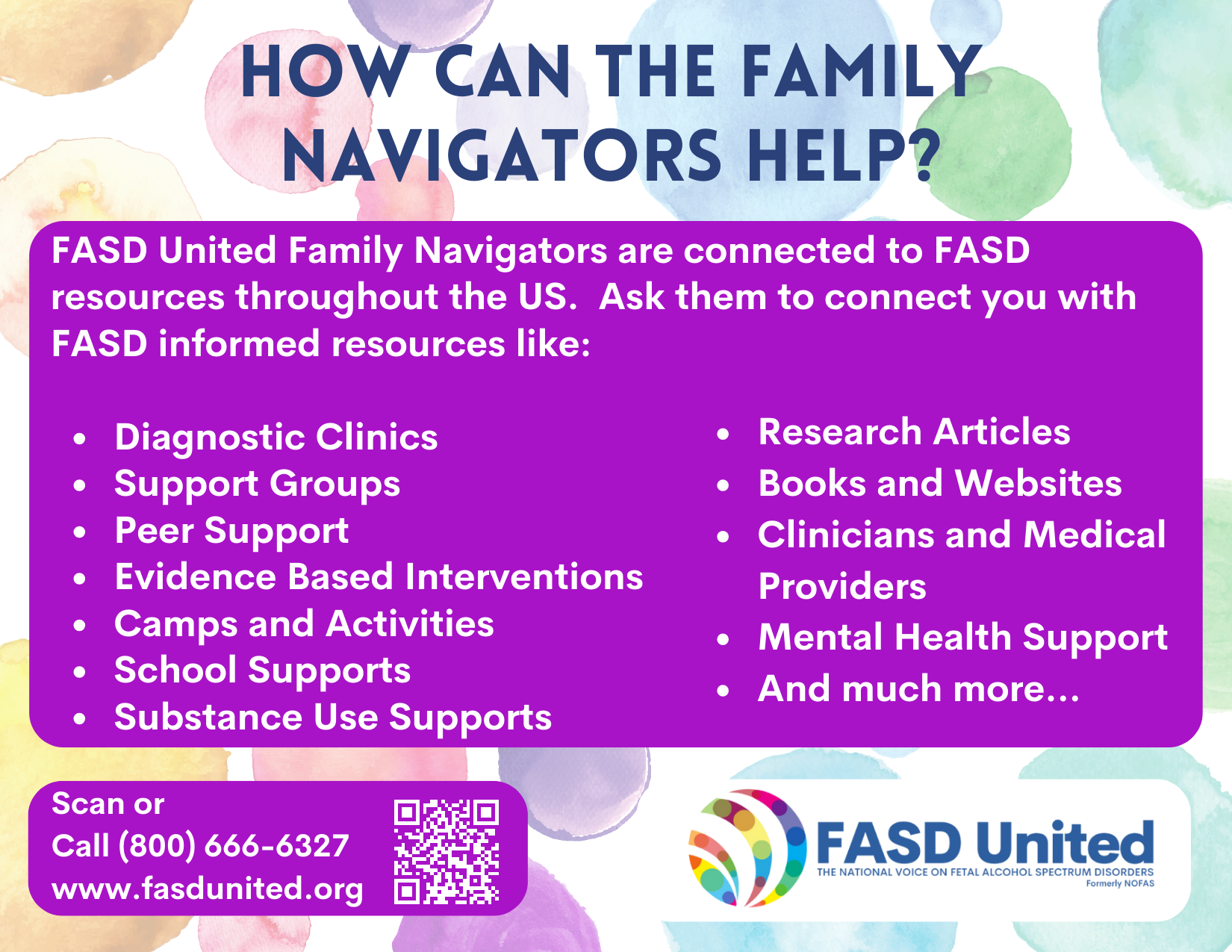Your cart is currently empty!
The FASD Experience
The best way to understand FASD is through the perspectives and abilities of individuals with living experience.



Myth:
- FASD is strictly a maternal-child health issue.
2. Individuals with FASD need to “look” a certain way to find validity in their disability.
3. All individuals living with FASD act and think the same.
4. Individuals with FASD are prone to run-ins with the criminal justice system.
5. People with FASD are just “picky” or “too sensitive.”
6. The responsibility of FASD falls on birth mothers.
Fact:
- FASD affects everyone. 1 in 20 people live with this non-apparent disability and many are not receiving the support they need.
2. Only around 10% of those diagnosed with FASD have the associated facial features. Assuming a person should look like their disability is stigmatizing.
3. FASD is a spectrum disorder, not a sliding scale, and those living with it experience things uniquely.
4. People with FASD are often likely to be victims of crime rather than perpetrators of one. There are many complexities behind this myth.
5. Sensory processing sensitivities are common in those diagnosed with FASD.
6. People drink prior to recognition of pregnancy, experience unplanned pregnancies, or live with Alcohol Use Disorder (AUD) or Substance Use Disorder (SUD). The responsibility of addressing FASD falls onto all of us as a society.
Learn More
Read our FAQ pages & fact sheets for more information on this common disability.

Become a Living Experience Collaborator!

Get Involved as an FASD Self-Advocate:

Access Our Family Navigator:
Our Family Navigators offer FASD-informed, confidential, & free support. Give them a call at 800-666-6327 or click the button above to access.
Quotes from Self-Advocates



“Some people will just see someone as their disability and not as who they actually are. It’s like the saying don’t judge a book by its cover; don’t judge someone by their disability either.”
–Marlee
“Ideally no pregnant person should drink… but we don’t live in an ideal world – so what do we do with the people who are already here, already affected with it (FASD) and challenged by it?”
-Kenny
“Talking prevention is great, but we need to give resources for people with FASD to get help, and give those statistics along with prevention.”
-Rebecca
“The strategies I’ve developed to make myself a successful adult all came out of recognizing that it wasn’t my brain being lazy but not processing correctly.”
-Stephen
“It (FASD) is sometimes preventable, but sometimes people just don’t know that they’re pregnant and they drink…Some people are addicted, and they can’t stop even though they should.”
-Brenna
“Receiving a proper, accurate diagnosis is the first step in self-advocacy, as it allows individuals to understand their strengths and challenges. This awareness helps them identify and access appropriate supports for success.”
-Laura
“The older I get, the more self-aware I’ve become. When I was younger, I didn’t have a way to think for myself compared to this year. The more I’ve learned about FASD, how others are affected, and what causes it. It’s helped me understand more about myself and what I need to do to prevent any more misunderstandings within myself and for others.”
-Landon
“Midlife with FASD is not a straight path. There are many turns, and often, there are not enough signs to tell you which way to go. It’s like going on a nature hike without a map, no GPS, and nothing except a compass that doesn’t always point North.”
-Carl
Please Note:
As defined by U.S. federal agencies, researchers, and other experts at the 2004 Fetal Alcohol Spectrum Disorders Terminology Summit sponsored by FASD United (then the National Organization on Fetal Alcohol Syndrome – NOFAS), “Fetal alcohol spectrum disorder (FASD) is an umbrella term describing the range of effects that can occur in an individual prenatally exposed to alcohol. These effects may include physical, mental, behavioral, and/or learning disabilities with lifelong implications.” FASD United utilizes the current definition:
Fetal Alcohol Spectrum Disorders (FASDs) are a group of diagnosable medical conditions that can occur in a person who was exposed to alcohol before birth.
Effects are lifelong and can include mental health conditions, learning disabilities, sensory issues, and physical manifestations such as heart defects, hearing, visual impairments, and more.
*The term FASD is not intended for use as a clinical diagnosis.

